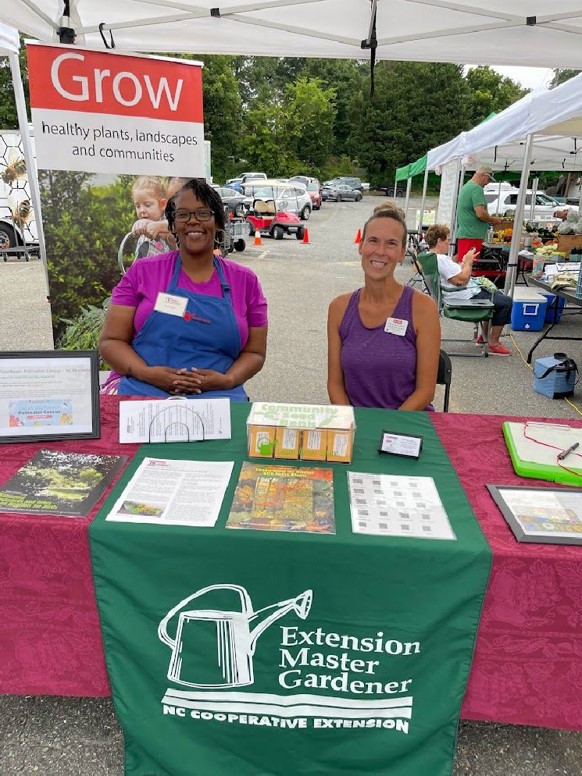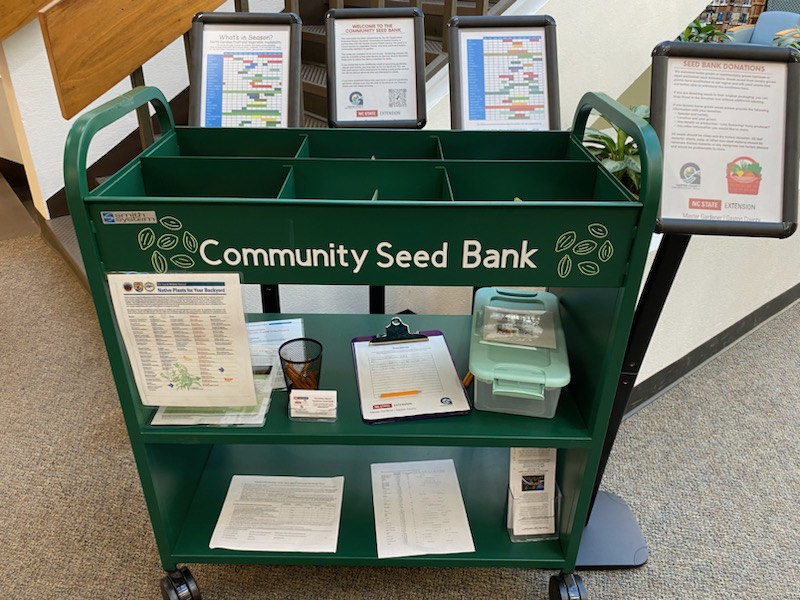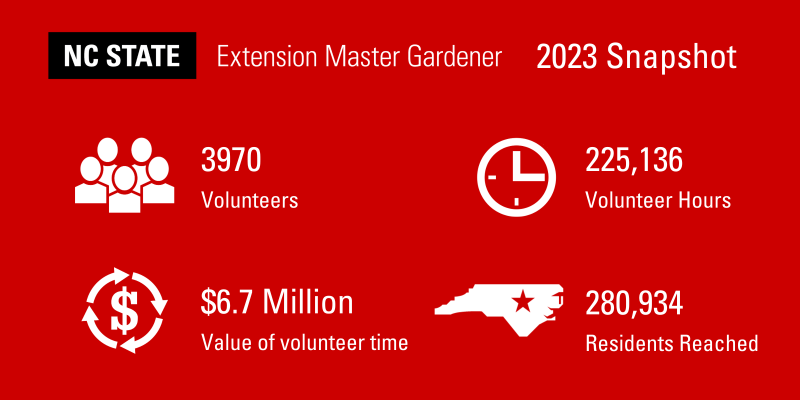EMG Volunteers Grow Resilience With Seed Libraries
go.ncsu.edu/readext?983570
en Español / em Português
El inglés es el idioma de control de esta página. En la medida en que haya algún conflicto entre la traducción al inglés y la traducción, el inglés prevalece.
Al hacer clic en el enlace de traducción se activa un servicio de traducción gratuito para convertir la página al español. Al igual que con cualquier traducción por Internet, la conversión no es sensible al contexto y puede que no traduzca el texto en su significado original. NC State Extension no garantiza la exactitud del texto traducido. Por favor, tenga en cuenta que algunas aplicaciones y/o servicios pueden no funcionar como se espera cuando se traducen.
Português
Inglês é o idioma de controle desta página. Na medida que haja algum conflito entre o texto original em Inglês e a tradução, o Inglês prevalece.
Ao clicar no link de tradução, um serviço gratuito de tradução será ativado para converter a página para o Português. Como em qualquer tradução pela internet, a conversão não é sensivel ao contexto e pode não ocorrer a tradução para o significado orginal. O serviço de Extensão da Carolina do Norte (NC State Extension) não garante a exatidão do texto traduzido. Por favor, observe que algumas funções ou serviços podem não funcionar como esperado após a tradução.
English
English is the controlling language of this page. To the extent there is any conflict between the English text and the translation, English controls.
Clicking on the translation link activates a free translation service to convert the page to Spanish. As with any Internet translation, the conversion is not context-sensitive and may not translate the text to its original meaning. NC State Extension does not guarantee the accuracy of the translated text. Please note that some applications and/or services may not function as expected when translated.
Collapse ▲
Extension Master Gardener℠ volunteers in Gaston County host seed libraries at local farmers markets. Image by Heather Dake, Extension Master Gardener volunteer.
Across the country, Extension Master Gardener volunteers expand access to fresh produce and increase community resilience by teaching local individuals and families how to grow their own food. One way NC State Extension Master Gardener℠ volunteers are doing this is by starting and supporting seed libraries throughout North Carolina.
Typically found at a library, community center, or other public space, a seed library is a resource where seeds are available for free to community members. Gardeners, students, teachers, and anyone interested in gardening can checkout seeds to grow plants for an existing garden or start a new garden. At the end of the growing season, they are encouraged to collect seeds from crops they successfully grew and donate them back to the seed library for others to checkout.
The Community Seed Bank in Gaston County is one of any seed libraries in North Carolina. Extension Master Gardener volunteer Caroline Ingram, founder of the Community Seed Bank, recently told us about this initiative and how it began as a partnership between Extension Master Gardener volunteers in Gaston County and Gaston County Public Libraries.
Both partners wanted to ensure access to vegetable, flower, and herb seeds and inspire community members to garden throughout the year. As a result, the Community Seed Bank opened in August 2022 at the Garrison Branch of the Gaston County Public Library and has since expanded to all 10 branches. There are also two traveling seed banks that Extension Master Gardener volunteers host at local farmers markets to help spread the word and share seeds with the community.

Community Seed Bank at the Garrison Branch of the Gaston County Public Library. Image by Caroline Ingram, Extension Master Gardener volunteer.
Launching a seed library may seem daunting, but it can start with small steps taken by a few interested individuals. The Community Seed Bank in Gaston County started with donations from Master Gardener volunteers, Bently Seeds, and community members. They also purchased some seeds to make sure there was enough variety and ordered small envelope to neatly package the seeds and keep them organize. The seeds offered change throughout the year to match the growing season, ensuring gardeners the best chances of success.
So far, more than 20,000 seeds have been distributed, including a wide range of heirloom and non-GMO fruit, vegetable, and herb seeds. Extension Master Gardener volunteers are committed to supporting the seed bank as a way of promoting sustainable living and empowering the community to take control of their food sources.
If you live in Gaston County, visit your local library to learn about seed availability. If you have questions about the Community Seed Bank, gardening in Gaston County, or the Extension Master Gardener program in Gaston County, contact N.C. Cooperative Extension horticulture agent Julie Flowers at 704.922.2104.
Residents of other North Carolina counties can contact their local N.C. Cooperative Extension Center to learn if a seed library has been established in their community, get answers to gardening questions, and learn about becoming an Extension Master Gardener volunteer.

The NC State Extension Master Gardener℠ program is a statewide network of volunteers and Extension educators working in N.C. Cooperative Extension county centers and on NC State campus. Through education and outreach, we connect people with the benefits of gardening and empower North Carolinians to cultivate healthy plants, landscapes, ecosystems, and communities.
Explore stories from our 2023 Annual Report, which celebrates our work to help North Carolinians improve their lives and grow our state.
Join, support, or connect with Extension Master Gardener volunteers in your community.


